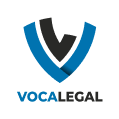The Role of ChatGPT and Human Intervention in Legal and Pharmaceutical Translations
Advancements in natural language processing (NLP), particularly in models like ChatGPT, have revolutionised the translation landscape. While these tools can be helpful for individual translators in translating segments or expressions, they are not yet suitable for full-length texts, particularly in the legal and pharmaceutical industries. This article will discuss the benefits and limitations of using ChatGPT for translations, emphasising the importance of human intervention for accurate and reliable translations in both sectors.
The Advancements and Benefits of ChatGPT in Translation
Assisting Individual Translators: ChatGPT and other NLP models have made significant progress in understanding and processing languages, offering valuable assistance to translators in translating individual segments or expressions. This can increase efficiency and accuracy when used as a supplementary tool.
Limitations in Translating Full-Length Texts: Despite its advancements, ChatGPT cannot currently effectively handle full-length documents such as patent applications, clinical trial reports, or legal contracts. It cannot maintain context and accurately convey complex concepts throughout a lengthy document or across multiple documents.
The Flaws and Weaknesses of ChatGPT Translations
Loss of Context and Accuracy: When using ChatGPT without human intervention, translations may lose context or contain inaccuracies, leading to potential misunderstandings in legal and pharmaceutical documents. For example, ChatGPT may struggle with translating technical jargon or industry-specific terminology, which could be crucial for legal proceedings or regulatory submissions.
Legal and Regulatory Consequences of Mistranslations: A single-word mistranslation can have severe legal and regulatory consequences, as seen in the Teekay Tankers v. STX Offshore & Shipbuilding Co. Ltd [2017] EWHC 253 (Comm) case. The mistranslation of a single word led to disagreements over a contractual term, resulting in a legal battle. Similarly, mistranslations in pharmaceutical documents can lead to regulatory non-compliance, resulting in financial penalties, legal action, or delayed product launches.
The Importance of Human Intervention and Contextual Understanding
The Role of Human Expertise: While ChatGPT and other NLP models have made considerable strides, they cannot yet replace the expertise of human translators, particularly in the legal and pharmaceutical sectors. Legal and pharmaceutical translations require a comprehensive understanding of the entire document, as well as the legal or regulatory systems involved.
Ensuring Accurate and Reliable Translations: To ensure accurate and reliable translations, human translators must play a central role in the process. By combining human expertise with the assistance of NLP models like ChatGPT, translators can achieve greater efficiency and accuracy while maintaining the necessary contextual understanding.
Conclusion
Although ChatGPT and other NLP models have made significant progress in translation, they cannot be solely relied upon for legal or pharmaceutical translations requiring full contextual understanding within the respective industries. Human expertise and intervention remain critical in ensuring accurate and reliable translations. By leveraging the strengths of both NLP models and human translators, the translation process can be improved while minimising the risk of errors and inaccuracies, ensuring legal compliance and successful regulatory submissions.




